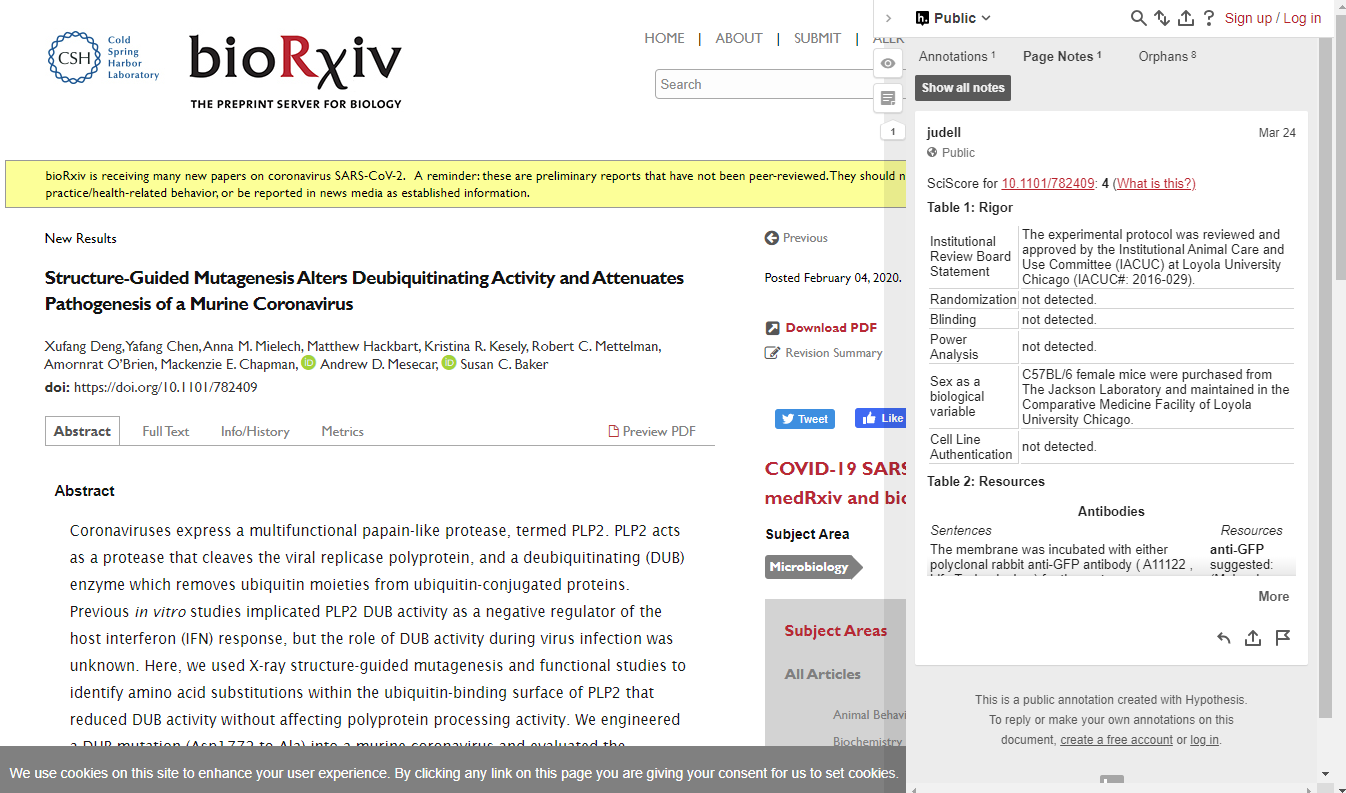PubTech Radar Scan: Issue 6
Launches
PKP have released the first version of its new preprint server software Open Preprint Systems 3.2 Beta. See Generation R interview with Juan Pablo Alperin and Open Preprint Server (OPS) launch webinar on YouTube.
Knowledge Unlatched have launched a new Open Research Community (ORC), using Zapnito’s community platform software. [Press release]
Researchers at Stockholm University will be able to find out if they can publish open access in a given journal without having to pay an APC using a new search tool developed in collaboration with Scientific Freedom (SciFree AB), “From a quick search, users can see summary information at the journal level and, if needed, click through to the library’s publisher agreement pages. These publisher specific information pages offer detailed information on how to get journal articles published open access within the agreements arranged through Stockholm University Library.” Not hard to predict that there will be a huge demand from Institutions for researcher friendly tools in this area!
I’m looking forward to finding out more about how SciScore are checking the reproducibility of COVID-19 papers on bioRxiv and medRxiv. This is the first example of an article with a SciScore report published as an Hypothesis annotation. The article gets a score of 4 but you need to do a bit of digging to find out it’s 4/10 and I think a 4 means that many of the rigour criteria aren’t met.

Scholarcy have a new service which allows you to get summaries of articles listed in an RSS feed.
Adam Day has built arXangel, a web app which recommends suitable journals to submit your arXiv preprint to, identifies potential referees and shows you similar articles. [Notes about how it works].
News
Following the acquisition of F1000Research by Informa plc., F1000Workspace has rebranded as Sciwheel and F1000Prime has rebranded as Faculty Opinions.
Does awarding Open Data Badges increase data sharing on BMJ Open? Not really. “Badges did not noticeably motivate researchers who published in BMJ Open to share their data; the odds of awarding badges were nearly equal in the intervention and control groups (odds ratio = 0.9, 95% CI [0.1, 9.0]).” The authors note that badges might be more effective if combined with a bundle of other incentives.
Martin Klein and Lyudmila Balakirev have analyzed the resolution of DOIs associated with scholarly resources. The findings highlight the complexity of DOI resolution, “scholarly content providers reply to DOI requests differently, depending on the request method, the originating network environment, and institutional subscription levels”. I wonder how much of this variance is historic and how aware publishers are of what their platform providers are doing here?
Digiday’s piece on what three independent publishers are doing to live to stay alive includes this nugget from Skift Research (travel industry analysis). “...rather than charging for access to its new webinar series, viewers are given the option to pay what they want. One webinar last month on business travel had over 3,000 viewers and while not every attendee paid, the average amount contributed from viewers was $37 per person.” I think it would be great if this year’s STM Innovations Day could offer a pay what you can option. The meeting costs USD180 for non-members so I assume that it’s only the larger publishers who can pay for their staff to attend, a pay what you can model would open up the meeting to a much broader audience and could bring in some additional revenue for STM.
TNPS has picked up some interesting stats from Dosdoce.com about how Spain’s lock-down is changing reading habits: “Spain’s eBiblio government-operated public library platform has grown 130% since the State of Emergency was declared, picking up over 18,000 new users in three weeks...Bookwire and Libranda are both reporting a 50% increase in digital books engagement, while Kobo says ebooks are up 140% and audiobooks 254%.”
Metadata
Patricia Feeney runs through the latest updates to Crossref’s schema. Big 👍 to closer alignment with JATS to reduce the complexity of metadata conversion work.
Crossref has put it’s 112.5 million metadata records into one file for easy download. [Notes] [File]
Inspired by the methodological challenges faced trying to investigate preprint growth and uptake the ScholCommLab make four suggestions for improving the state of metadata in the preprint ecosystem.
Duncan Campbell and Roy Kaufman dig into the details of The Digital Single Market Directive, text and data mining and copyright in a Beyond the Book podcast Healthy Metadata and the EU Copyright Directive.
Events and grants
US STM Annual Conference: Innovations Day is happening virtually on Thursday, April 30th, 2020 with the theme: What the user wants: smarter data, smarter machines, smarter science
Are you working on a creative project using VR, AR or MR? Digital Catapult are offering funding of up to £20k for new forms of storytelling (fiction or nonfiction)

